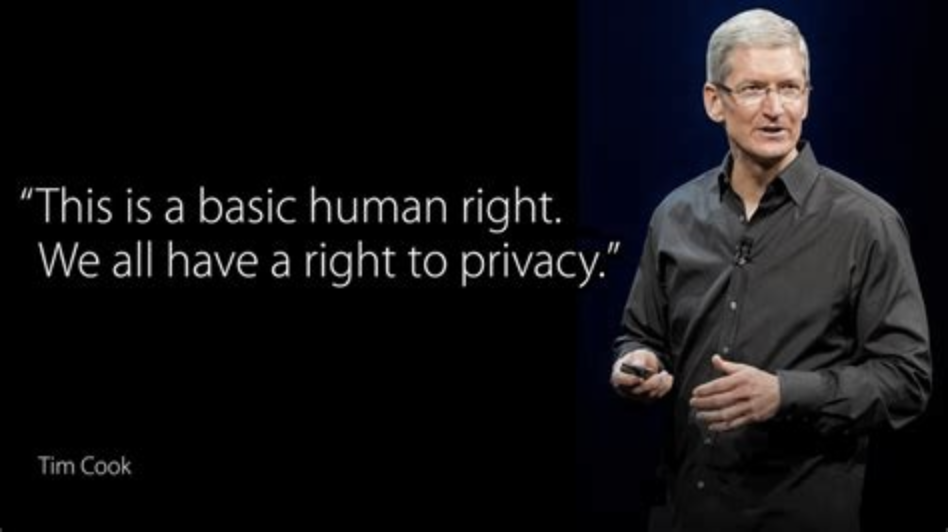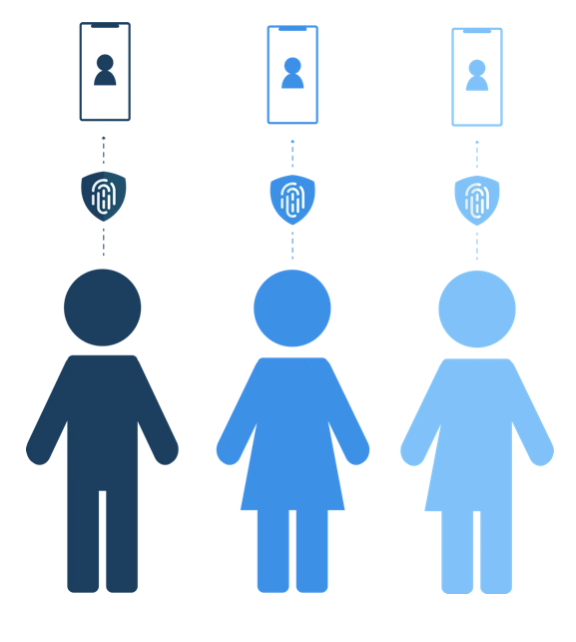What is Privacy-Focused Differentiation?
What the strategies are and why your company needs one
By Alice Zhang
March 15, 2021
What do consumers value, second to their time? With proposed and adopted laws across the world coming up such as the California Consumer Privacy Act (CCPA) and the General Data Protection Regulation (GDPR), most of us wouldn’t think twice before answering privacy. A new survey by SAS found that an overwhelming majority (73%) of consumers were experiencing rising concerns over their data privacy. In fact, the same survey found that many of these consumers were more likely to cut back on their use of certain mobile applications or websites due to privacy concerns.
What is privacy-focused differentiation?
Given the rising concerns over consumer privacy protection, privacy-focused differentiation has become an increasingly important tactic for companies to use. Thus, the important question becomes what even is privacy-focused differentiation? Essentially, privacy-focused differentiation is a strategy in which companies distinguish themselves from competitors through their consumer privacy policies. The strategy can be compared to product differentiation, where companies work to distinguish their products/services from those of their competitors. Just as product differentiation goes hand in hand with helping make products attractive to an audience, privacy-focused differentiation helps make policies more attractive to consumers.
Although it may be simple, privacy-focused differentiation has been a key strategy for several large tech companies, such as Google and Apple amidst the growing heat of consumer privacy concerns. As mentioned earlier, California recently adopted the CCPA, which led to more attention towards federal privacy legislation. In November of 2020, California passed Proposition 24 which amends the CCPA with an even more comprehensive privacy policy: the California Privacy Rights Act (CPRA). Without understanding these legislative actions, it may seem like the new wave of consumer privacy protection legislation is bad news for big tech companies. However, when examining the privacy policies of these companies, it’s obvious that this is not the case. With their current policies, Apple, Google, Facebook, and even Uber not only meet the demands of these regulations but exceed them. By making the most of this opportunity, these companies have been able to distinguish themselves from their competitors and each other.

To give a more specific example, in 2018, Apple, Google, and Facebook were facing extreme allegations for exploiting consumer data. Rather than trying to defend its current policies, Apple took advantage of the situation to launch its “Privacy Matters” campaign. CEO Tim Cook gave an interview with MSNBC to spread his message that “[Apple] care[s] about the user experience” claiming that “privacy to [Apple] is a human right”. As part of its strategy, Apple didn’t just hike up its marketing tactics. What followed was a stream of new privacy-focused features, promoting maximum user choice with what is done with their data. With the combination of all of these, it becomes nearly impossible to ignore the signs that “Apple cares about your privacy,” regardless of whether it is actually true. With a thorough marketing campaign and several new features, Apple successfully put itself in thousands of consumers’ minds as one of the companies most dedicated to user privacy, differentiating itself from its competitors.
Even today, it is commonly known that Facebook is one of the most untrustworthy companies when it comes to consumer data privacy. A Pew study found that 74% of users reported either adjusting their privacy settings, taking a break from Facebook, or flat out deleting the app in the face of Facebook privacy allegations. This growing consumer dissatisfaction with Facebook’s privacy policies clearly shows the company’s failure in its consumer privacy policies. The dissatisfaction eventually reached a degree where a #DeleteFacebook movement was initiated. Ultimately, Facebook’s failure to gain consumer trust with its use of consumer data at such a crucial time serves as a warning for companies to expand their privacy policies. In the current climate, it is necessary for companies to have a privacy-focused differentiation strategy not only to distinguish themselves from their competitors but also to safeguard against incidents such as those Facebook has faced.
Key Strategies
Given these examples, it may seem a bit intimidating to approach organizing a privacy-focused differentiation strategy. Not every company has the resources to launch a huge marketing campaign such as Apple’s “Privacy Matters” or” or needs to. To break it down, the most minimalistic form of such a strategy would be made up of two parts: marketing and implementation. Marketing can range from integrating with existing marketing outlets such as company blogs to an all-out campaign. The implementation, on the other hand, almost always involves a reconsideration of existing privacy policies and, if your company offers them, new features in your products that maximize consumer control over their data. As an example, this article is part of humanID’s effort to educate our clients and the public on topics surrounding privacy.
When implementing a privacy-focused differentiation strategy, whether you are reinstating an existing one or starting from scratch, there are three key strategies to follow.
First, timing is incredibly important. If you have not implemented the two components of a privacy-focused differentiation strategy, take advantage of time as a means of differentiating from competitors. No matter how thorough or established your strategy is, if you implement it years from now when almost every other competition has already done so, consumers aren’t going to bat an eye. Your privacy-focused differentiation strategy will then become more of an effort to meet the baseline among competitors rather than to gain an edge. To put it simply, use your edge while you still have it.
Similarly, personalize your strategy. What component of consumer privacy is most important to your specific target audience? Maximize that knowledge to gain consumer trust. A good privacy-focused differentiation strategy provides a win-win situation for all parties involved. Consumers leave feeling secure and in control and the company gains another client.
Finally, don’t shy away from risk. Years ago, Apple’s privacy-focused differentiation strategy would have seemed insane. Why would a company go into such trouble when consumers weren’t even aware of such issues? However, such a mindset backfires, as seen in Facebook’s example. Therefore, don’t be afraid to set the standard in your sector or industry. Maximize your resources to provide consumers with the best possible user experience so they never have to doubt your dedication to their privacy.

A simple solution to implement a privacy differentiation strategy is to connect with humanID so that your users have the simplest and most secure experience when logging onto your site and using your services. Our technology allows for maximum consumer security by only permitting each user to have a single, anonymous digital identity. What’s more, as a non-profit and open-source platform, all of our policies and code are made available for public use. Our privacy-focused differentiation strategy is centered around our mission to restore privacy for users and prevent misinformation. What’s yours?
